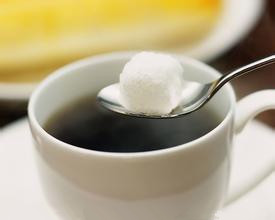Coffee and health knowledge about caffeine

Whether coffee affects health is a topic of great concern to many people, and scientists have been debating it for many years. But so far, scientific research has not found conclusive evidence that moderate consumption of coffee is harmful to human health. Between 1970 and 1980, the results of this study were usually negative. Extensive media coverage makes people feel uneasy about the caffeine in their diet.
In the 1990s, due to a more rigorous and accurate testing process and a better understanding of other aspects, such as alcohol consumption, exercise habits and smoking, these studies have now been able to clarify some unresolved arguments in previous studies. In particular, it has provided a lot of new knowledge about caffeine and health.
Many studies have shown that caffeine is actually good for the human body in many ways. For example, coffee can stimulate athletes to create better results, and it is found that the moderate stimulation caused by coffee is conducive to many daily activities, such as relieving work stress, refreshing effect when preparing homework, and so on. Moderate consumption of coffee will not affect human health, but is a good pick-me-up drink, almost no side effects.
Know caffeine
Caffeine is a mild stimulant that contains less caffeine in our daily drinks such as tea, cocoa and chocolate. Caffeine is also found in carbohydrate drinks such as cola and some anesthetics. It can accelerate the metabolism of the human body and keep people clear-headed and sensitive. The refreshing effect of coffee is very popular.
Caffeine can stay inside the body for several hours, and the effect on the body is appropriate for each person. Some people will lose sleep after drinking coffee at night, while others will be nervous and overexcited if they drink too much coffee, but many people will not be affected at all.
Once we understand the body's response to caffeine, we can use it to meet our needs. Drinking a cup of delicious coffee before the exam or long-distance driving will certainly reduce fatigue.
The caffeine in coffee is insoluble in cold water, but easily soluble in hot water. It will stimulate the cerebral cortex, eliminate drowsiness, enhance the sense of touch and thinking and adjust the function of the heart, but also dilate kidney blood vessels, diuresis and so on. However, caffeine is not limited to coffee. Usually a cup of 100cc coffee contains caffeine 60~65mg, green tea has 200~300mg, black tea has 350~400mg, and cocoa has about 100mg. Excessive caffeine intake is prone to tinnitus, hyperfunction of the heart (the heart beats rapidly, the number of pulses increases), and the pulse is uneven, so you must drink coffee in moderation.
Health and caffeine
There is no data to show that caffeine or drinking coffee is harmful to your health. On the contrary, some studies have shown that caffeine is good for human health. People often ask: how much coffee is too much? In fact, it all depends on the individual's bearing capacity and habits.
A cup of coffee contains an average of 60 to 90 milligrams of caffeine, while the average human body consumes nearly 500 to 600 milligrams of caffeine a day without any side effects. Coffee, tea and Coca-Cola are not addictive. Although many people are used to drinking these drinks for a long time, they just like their taste and "refreshing" effect, and it is not difficult to really "give up".
Pregnant women's metabolism is relatively slow, so they should drink less coffee. Unlike smoking or drinking, drinking coffee does not have adverse consequences on fetal development and weight.
In the United States, a nearly decade-long survey of 85000 nurses found that moderate coffee consumption was not associated with the incidence of heart disease, nor with a variety of high blood pressure diseases.
There is only one special way to make coffee that is bad for your health. In Scandinavia, according to tradition, people brew coffee for hours to extract more coffee oil from it. The coffee brewed in this way contains a lot of cholesterol and can easily lead to heart disease and cancer. The taste of this coffee is also very different from that of coffee prepared by other methods.
Coffee and Health Q & A
Does drinking coffee affect sleep?
Many people have the experience of being too excited to sleep after drinking coffee. This is because there is a conductive substance called adenosine in the body, which controls neural activity and produces slow breathing, emotional weakness, reduced gastric acid secretion and diuretic effects. On the other hand, caffeine will fake adenosine, making the body think that the effect of adenosine has taken place, making you feel energetic, increased stomach acid, urinate more frequently, and naturally less willing to fall asleep. It is worth noting that the brief awakening caused by this caffeine does not mean that physical strength is really restored. In addition, everyone has a different metabolic rate of caffeine, so their sensitivity to caffeine varies, so some people don't feel that their sleep is affected after drinking coffee. Therefore, a cup of hot coffee after getting up in the morning can exhilarate the body and mind and make the mood more comfortable, while it may cause insomnia at night.
Will coffee cause calcium loss?
In recent years, as people pay more and more attention to the problem of calcium loss and osteoporosis, there is also considerable doubt about coffee. As for the relationship between caffeine intake and osteoporosis, there is no direct evidence that caffeine causes osteoporosis, but some studies have shown that caffeine increases calcium loss. Therefore, it is suggested that coffee lovers should eat more high-calcium foods to supplement calcium, such as preparing cheese slices or cheese cake to enjoy with coffee, which can not only supplement calcium, but also make the coffee more delicious.
Is it right to drink coffee while it is hot?
The best drinking temperature for coffee is 85-88 degrees Celsius. The taste of a good cup of coffee should be consistent regardless of the temperature, which is why coffee test appraisers rate the whole process of coffee from hot to cold. After cooling, a good cup of coffee will taste even better than when it is hot, except for less aroma. But because of the instability of coffee itself, it is mostly encouraged to drink while it is hot. From one point of view, when a cup of hot coffee is in front of you, drinking while it is hot is coffee etiquette.
Coffee is a beauty killer?
So far, no study has shown that caffeine and melanin in coffee are absolutely related to increased melanin or aging of the skin. On the contrary, a moderate amount of caffeine can speed up metabolism, promote digestion, improve constipation, and improve skin roughness. About caffeine can accelerate metabolism, there is a saying that coffee will accelerate calorie burning, to achieve the effect of weight loss, the theory is basically correct, but this calorie burning is not enough to cause weight loss. If sugar and cream are added to the coffee, the calorie calculation is even more inconsistent with the principle of weight loss.
Who is not fit to drink coffee?
Patients with cerebral hemangioma are not suitable to drink coffee, heart disease patients should drink non-caffeinated or low-caffeinated coffee, because caffeine will increase the heart rate and cause heart hypoxia. In addition, patients with skin diseases and those with stomach problems should drink as little coffee as possible so as not to worsen their condition due to excessive consumption. People with diabetes should also avoid drinking coffee with too much sugar so as not to aggravate the condition. The US Food and Drug Administration (FDA) has issued a statement advising women who are or may be pregnant to reduce their caffeine intake. Because women metabolize caffeine about twice as fast during the second and third stages of pregnancy than when they are not pregnant, caffeine can cross the placenta into the fetus or enter the baby through breastfeeding. In addition, many studies have failed to prove that moderate amounts of caffeine have adverse effects on fetuses, and there are no medical reports banning pregnant women from drinking coffee. It is still recommended that pregnant women and breast-feeding women should be more cautious about their caffeine intake. In short, if you find that you are not feeling well after drinking coffee, you should not drink coffee for the time being, and then start by reducing your intake and changing your drinking method.
Important Notice :
前街咖啡 FrontStreet Coffee has moved to new addredd:
FrontStreet Coffee Address: 315,Donghua East Road,GuangZhou
Tel:020 38364473
- Prev

Coffee + exercise weight loss four steps effective coffee health knowledge
Caffeine in coffee, has the role of promoting fat decomposition, the fat is released in the blood, after drinking coffee for 30-40 minutes, the concentration of fatty acids in the blood will become higher, then appropriate exercise can turn fatty acids into heat energy, effectively burn fingers, coupled with this secret coffee weight loss 4 steps and 4 tips, you will be able to lose weight. Four steps to lose weight smell ─
- Next

The stroke rate of middle-aged and elderly people who drink coffee in the morning is greatly increased.
After getting up, would you like a cup of coffee to refresh your mind? According to Taiwan's United Daily News, a US study shows that middle-aged and elderly people who do not drink much coffee may have a heart attack if they wake up with a cup of coffee in the morning.
Related
- Beginners will see the "Coffee pull flower" guide!
- What is the difference between ice blog purified milk and ordinary milk coffee?
- Why is the Philippines the largest producer of crops in Liberia?
- For coffee extraction, should the fine powder be retained?
- How does extracted espresso fill pressed powder? How much strength does it take to press the powder?
- How to make jasmine cold extract coffee? Is the jasmine + latte good?
- Will this little toy really make the coffee taste better? How does Lily Drip affect coffee extraction?
- Will the action of slapping the filter cup also affect coffee extraction?
- What's the difference between powder-to-water ratio and powder-to-liquid ratio?
- What is the Ethiopian local species? What does it have to do with Heirloom native species?

